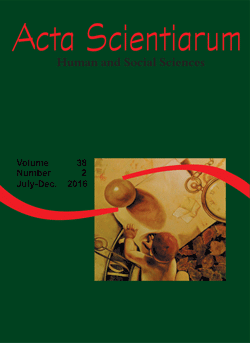<b>The influence of training programs in the construction of professional identity: The case of CI-Brazil
Abstract
We propose a model of perception analyses of professional identity based on quantitative criteria. Identity is a largely discussed issue by social sciences and there is a consensus about the difficulties to identify its social construction and even its perception by the subjects themselves. Professional identity is not different. Thus, we aimed to show how public policies of formation and consolidation for the microelectronics sector have affected these professionals over the last decade. We used social network analysis tools to determine semantic similarities between academic and technical works of researchers who applied projects to the CA-ME and of trainees under CI-Brazil Program. We then used the collected data to characterize, from the distribution of keywords collected throughout time, the identity evolution of the subjects. The results indicate that social networks assembled by our study from the semantic analysis of the keywords of the production of microelectronic researchers are a good marker of group identity.
Downloads
DECLARATION OF ORIGINALITY AND COPYRIGHTS
I Declare that current article is original and has not been submitted for publication, in part or in whole, to any other national or international journal.
The copyrights belong exclusively to the authors. Published content is licensed under Creative Commons Attribution 4.0 (CC BY 4.0) guidelines, which allows sharing (copy and distribution of the material in any medium or format) and adaptation (remix, transform, and build upon the material) for any purpose, even commercially, under the terms of attribution.
Read this link for further information on how to use CC BY 4.0 properly.
























